![]()
Sun, Jan 15, 2012
Iran: Severe Conflict between Government, leading Film Industry Figures
This article was originally published in the Meir Amit Intelligence and Terrorism Information Center’ bulletin on Iran, number 150.
Last weekend leading figures in Iran’s film industry released a memorandum of opinion condemning the Islamic Guidance Ministry’s decision to close the House of Cinema, the main trade union for those employed in the local film industry. The signatories strongly criticized Islamic Guidance Minister Mohammad Hosseini, accusing him of an attempt to compromise the independence and freedom of filmmakers and warning that attempts to create an “ideal cinema” may result in its collapse (Mehr, January 7).
Ahmad Tavakoli, head of the Majles Research Center, also criticized the decision to close the House of Cinema on the eve of the Majles elections, saying that it stemmed from political considerations. Tavakoli argued that even if the conduct of the House of Cinema can be rightly criticized, the decision to close it is unreasonable, inappropriate, and also illegal, since it was made without a court order (Mehr, January 7).
Last Tuesday the Public Culture Council informed Mohammad-Mehdi Asgarpour, director of the House of Cinema, that it was decided to shut down the union following an announcement released by the Islamic Guidance Ministry, stating that the House of Cinema had made illegal changes to the constitution on the basis of which it was established in 1987. The Islamic Guidance Ministry also filed a petition to court against the House of Cinema for making the changes.
Last week Islamic Guidance Minister Mohammad Hosseini defended his decision to close the House of Cinema. He claimed that in recent years the union leaders have made a number of changes to the constitution of the House of Cinema without the approval of the Islamic Guidance Ministry and the Public Culture Council. For instance, they dropped a constitution article which required members of the union’s executive board to be loyal to the regime and committed to the promotion of appropriate cinema in accordance with the values of the Islamic republic.
The minister also noted that House of Cinema leaders refused to be supervised by the Islamic Guidance Ministry and disregarded its request to supervise the union’s election procedure. Hosseini also accused the House of Cinema of acting in a manner incompatible with the values of the Islamic revolution and the regime, and claimed that the government received numerous requests from Iranians to take strong action against the trade union of the film industry employees due to its inappropriate conduct. As an example of such conduct he mentioned a statement released by the union this past September in support of several documentary filmmakers detained by the authorities on charges of collaborating with the BBC. The minister also said that regime opponents who reside abroad and have made statements against the regime have been invited to the annual celebrations organized by the House of Cinema in recent years. According to Hosseini, such functions are proof that the activities taking place in the union are not professional but rather political (Jaras, January 7).
In response to the authorities’ decision to close down the House of Cinema, last Wednesday, January 4, the union leaders convened a press conference where they dubbed the decision as illegal. The union director argued that the House of Cinema is registered as an NGO, which is why the executive authority cannot close it down without a court order. Top House of Cinema figures categorically rejected the claims made by the Islamic Guidance Ministry against the union, saying they had never refused to be supervised by the ministry. The union members even threatened to boycott the Fajr international film festival, to be held in Tehran in February as in previous years.
The House of Cinema was established in 1987 and began its official activities in 1993. The union, which currently has about 5,000 members, was established to protect the rights of those working in Iran’s film industry and improve their work conditions. For the past year it has been engaged in a serious conflict with the Islamic Guidance Ministry. The conflict began in September 2010, after the 14th annual film festival organized by the House of Cinema in Tehran, during which Asghar Farhadi was awarded best director of the year for his film About Elly. The title role in the film was played by movie star Golshifteh Farahani, who had sparked an outrage in Iran in 2008 after playing in the Hollywood thriller Body of Lies, starring Leonardo DiCaprio and Russell Crowe. In his acceptance speech, Farhadi criticized the Iranian regime and called for political change in the country. The authorities were also angered by the appearance at the ceremony of film director Rakhshan Bani E’temad and her daughter, the actress Baran Kowsari, who came to the ceremony wearing a green-colored bracelet and scarf, green being the color of the reformist opposition. Following the ceremony, Islamic Guidance Minister Mohammad Hosseini voiced strong criticism of the film industry leaders and said they should not become involved in political affairs. His deputy also condemned the House of Cinema leaders, accusing them of turning the institution into an instrument of promoting anti-revolutionary political goals.
A memorandum of opinion issued by the House of Cinema this past September in support of filmmakers arrested on charges of collaborating with the BBC further exacerbated the conflict between the union and regime supporters. The conservative Fars News Agency went as far as to mock the House of Cinema by calling it the House of BBC.



 RSS
RSS

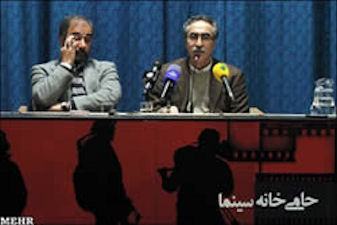
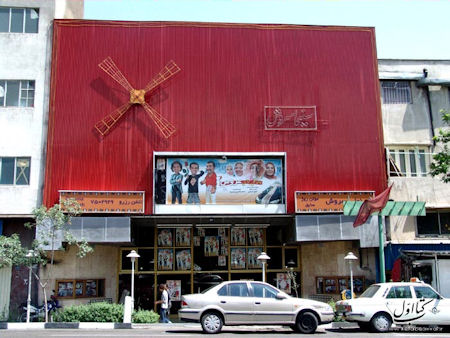
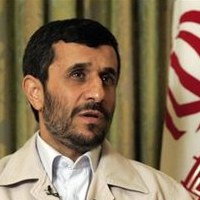

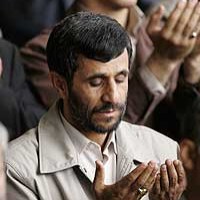
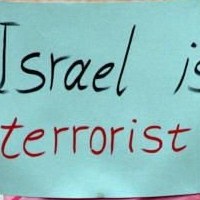





Iran: Severe Conflict between Government, leading Film Industry Figures | Middle East, Israel, Arab. http://t.co/7ec7hNct
Iran: Severe Conflict between Government, leading Film Industry Figures | Middle East, Israel, Arab. http://t.co/7ec7hNct
[…] not the first time Golshifteh Farahani angers Iran’s government. In September 2010, after the 14th annual film festival organized by the House of Cinema in Tehran, […]